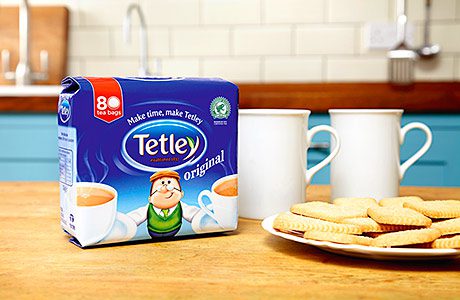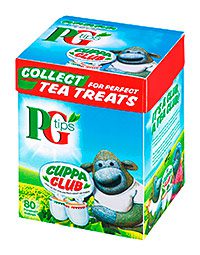
WHEN it come to drinking tea, only the Indians, Chinese and Irish are more enthusiastic than the British. And, while the traditional deep orange builder’s brew with milk retains a firm place in the nation’s heart, there are clear signs of experimentation and branching out.
So how should a convenience store make the most of this everyday essential? Tata Global Beverages, the company behind Scottish market-leading tea brand Tetley, recommends making sure the mix is right.
“Tea is a top-three buy for shoppers, but it’s often overlooked when reviewing how to increase store sales,” said Andrew Pearl, director of customer and shopper marketing at Tata Global Beverages.
“What you stock will depend on store size and location, but you risk turning your shoppers away if your shopper’s favourite brand is not available.
“Everyday black teas remain the most popular buy, packs of 80 and 40 are best sellers, alongside 160s. These might sound large but a family of tea drinkers will get through these in little more than a week.”
Beyond black tea, Tata recommends branching out to speciality teas and healthier options.“Green, decaf and redbush have real growth potential,” Pearl said.
“Decaf appeals to shoppers seeking a healthier lifestyle and volume sales have grown 3% in convenience. Tetley decaf has 43% volume share in the impulse sector.”
The company says redbush and Earl Grey are also showing growth, up by 0.5% and 4% by volume in convenience outlets. Green teas have grown 1% year- on-year and Tata says its packs of Tetley Green Pure 20s and Green Lemon 20s, in £1 PMPs, are an ideal c-store line.
The firm suggests tea, as a frequently purchased top-up item, should be located in a heavily visited area of the store, beside complementary products such as biscuits and cakes.
The company advises using promotional tools judiciously. “Price-marked packs and price strike-through packs can demonstrate real value, so consider your local market and assess which price-marked and extra-free packs will generate the best sales for you,” said Pearl.
“Although these packs are important, be cautious with the overuse of extra-free SKUS, particularly in categories such as tea where they don’t affect consumption, so don’t impact volumes purchased.”

• Kate Mitchell, PG Tips brand manager at Unilever agrees that tea is a crucial c-store product.
“The tea category in the UK as a whole is currently worth over £602m according to Nielsen,” she said. As the UK’s leading choice of beverage, second only to tap water, tea is in a very strong position as a leading drinks choice for consumers and continues to be a staple.”
Unilever sees the main growth for this year as coming from speciality teas. Paul Williams, marketing manager for beverages for Unilever in the UK and the Republic of Ireland, said: “As we progress through 2014, PG Tips aims to drive incremental value into the tea category through our move into fruit & herbal and green tea.”
The company quotes MAT Nielson figures showing that the two sub-categories’ sales are up 9.2% and 16.6% on last year.
It says its PG Tips fruit & herbal and green teas cater for consumers looking for “a big-tasting cuppa at an accessible price point”.
Mitchell said: “Increasing consumer demand for a choice and variety of tea flavours and formats has seen the speciality tea market grow by 1.6% in the last year according to Nielsen.
“Premiumisation is also key to driving value growth in tea as it provides consumers with greater choice and flavour options. It’s important as a category that we offer shoppers a variety of quality tea flavours to fit into their day.
“Our PG Tips premium range taps directly into the trend for premiumisation, by offering consumers different tea tastes and the opportunity to trade up into a higher price point.”
Unilever’s tea category director, Faye Newman, advised: “There is a big opportunity to offer a range tailored to suit your location and shopper profile. In affluent areas, offer more choice. In less affluent areas, focus on the core bestselling normal teas. The multiples take this approach and it pays dividends.”





















